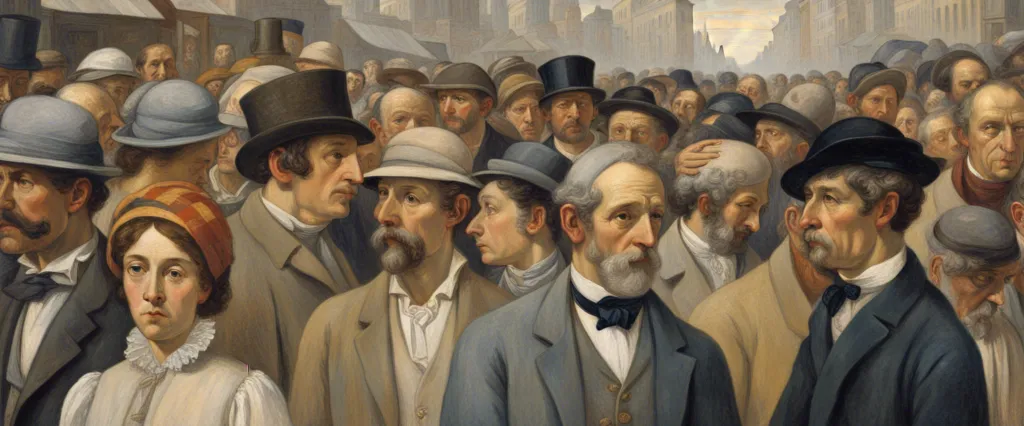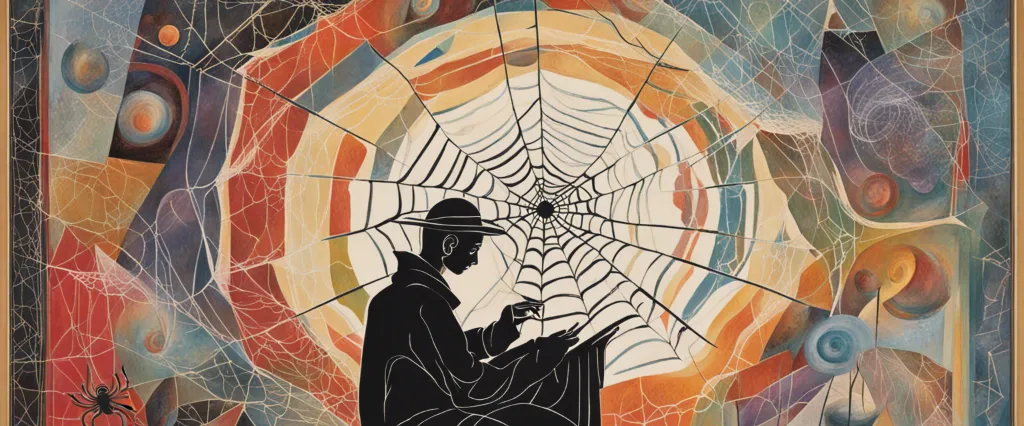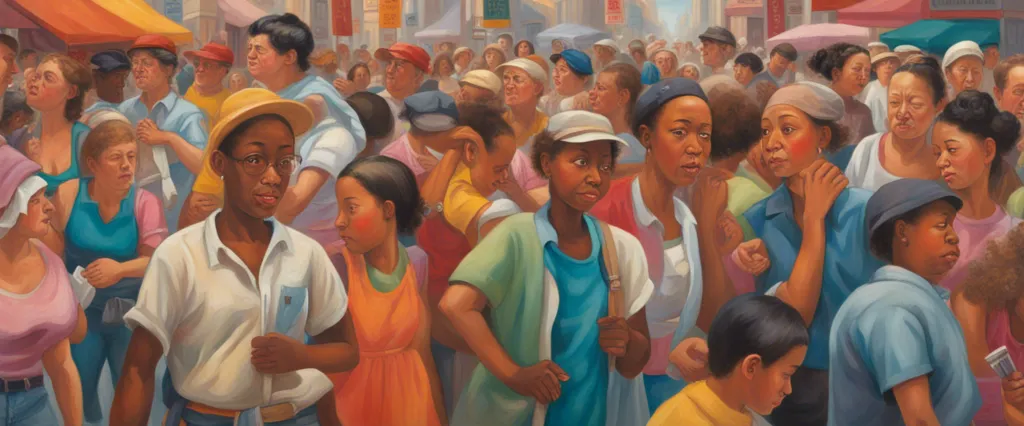——The Crowd by Gustave Le Bon & The Death of Expertise by Thomas M. Nichols

In an era marked by an unprecedented proliferation of information, the role of experts in shaping public opinion has come under intense scrutiny. Gustave Le Bon’s seminal work, “The Crowd,” published in 1895 during a period of rapid social change, examined the irrational and volatile nature of collective behavior. Similarly, Thomas M. Nichols, in his thought-provoking book “The Death of Expertise,” explores contemporary challenges faced by experts in an age of increasing skepticism and mistrust. While separated by over a century, both Le Bon and Nichols delve into the complex interplay between knowledge, authority, and the dynamics of society. By embarking on this comparative study, we aim to unravel the parallels, divergences, and enduring relevance of their insights, illuminating the enduring questions that have shaped our understanding of expertise and its place in the modern world.
Brief Summary of Two Books
The Crowd by Gustave Le Bon
The Crowd: A Study of the Popular Mind” is a non-fiction book written by Gustave Le Bon in 1895. It explores the psychological and sociological aspects of crowd behavior, focusing on the collective mindset and actions of groups. Le Bon examines how the presence of a crowd affects individual behavior, causing people to abandon rationality and take on the temperament and beliefs of the group. The book discusses how the anonymity and suggestibility of crowds can lead to a loss of individuality and an increase in emotional contagion, manipulation, and irrationality. Le Bon also explores the role of leaders in manipulating and influencing the crowd, highlighting the power dynamics between leaders and their followers. Overall, “The Crowd” delves into the psychology and dynamics of crowds, offering insights into the behavior of masses and the potential consequences of group thinking.
The Death of Expertise by Thomas M. Nichols
“The Death of Expertise” by Thomas M. Nichols explores the growing trend of individuals distrusting experts and dismissing their knowledge, ultimately devaluing expertise in society. Nichols argues that the easy accessibility of information on the internet and the rise of social media have made everyone feel like an expert, eroding respect for actual experts and their years of training and experience. The book discusses various factors contributing to this phenomenon, including the proliferation of biased news sources, the rejection of scientific consensus, and the rise of anti-intellectualism. Nichols asserts that this rejection of expertise is dangerous, as it leads to a decline in the quality of public debates, policy-making, and decision-making in general. He promotes the idea of embracing expertise and rebuilding trust in professionals and institutions.
Comparison between Two Books

Similarities in Social Psychology
Although “The Crowd” by Gustave Le Bon and “The Death of Expertise” by Thomas M. Nichols tackle different subjects and were written over a century apart, there are some similarities in their exploration of social psychology. Both books shed light on the tendencies of individuals when influenced by others, illustrating the potential consequences of collective behavior on society.
1. Influence of the masses: Both books delve into the power of the crowd or the masses to shape individual behavior and decision-making. Le Bon, in “The Crowd,” explores how individuals tend to lose their individuality when part of a collective, leading to a shift in their thoughts, emotions, and actions. Similarly, Nichols analyzes the influence of popular opinion and the impact of social media on individuals, arguing that people often abdicate their personal judgment to conform to the views of the majority.
2. Emotion over reason: Le Bon and Nichols both highlight the tendency of crowds to prioritize emotions over reason. Le Bon suggests that the collective mindset amplifies individuals’ passions and emotions, often leading to irrational and impulsive behavior. Nichols, in “The Death of Expertise,” argues that emotions and personal beliefs often cloud rational judgment and lead to the rejection of expertise in favor of opinions informed by tribalism or ideology.
3. Loss of individuality: Both books touch upon the loss of individuality within crowds or societies. Le Bon describes how individuals, once part of a crowd, become uncritical and easily swayed, losing their personal identities and adopting the prevalent group mentality. Similarly, Nichols argues that people in modern society frequently eschew critical thinking and rely on groupthink, leading to a diminished sense of individuality and a preference for conformity.
4. Manipulation and suggestibility: Le Bon and Nichols both discuss the vulnerability of individuals to manipulation and suggestibility in the face of collective pressure. Le Bon asserts that emotions and the absence of individual thought leave individuals susceptible to manipulation by influential figures or demagogues. Similarly, Nichols argues that in an age of information overload and the erosion of trust in experts, individuals become more easily manipulated by simplistic or misleading narratives perpetuated by politicians, media outlets, or social media influencers.
In summary, while “The Crowd” by Gustave Le Bon and “The Death of Expertise” by Thomas M. Nichols differ in their focus and historical context, they both explore social psychology themes related to crowd behavior, emotional influence, loss of individuality, and manipulation. These books ultimately provide valuable insights into how collective behavior and societal dynamics can impact individuals and society at large.
Divergences in Social Psychology
The Crowd by Gustave Le Bon and The Death of Expertise by Thomas M. Nichols both explore the behaviors and dynamics of human society, but they take contrasting approaches and perspectives in their analysis of social psychology.
In The Crowd, published in 1895, Gustave Le Bon examines the role of the collective and the influence it imposes on individual behavior. Le Bon highlights the irrationality and impulsiveness of crowds, arguing that individuals lose their rational thinking abilities when they become part of a larger group. He asserts that the crowd deprives individuals of their personal responsibility and intelligence, leading to a contagion of ideas and emotions that can drive them to commit deeds they might never contemplate individually. Le Bon’s work sheds light on the powerful sway of social influence and explores the consequences of collective behavior, both positive and negative.
In contrast, Thomas M. Nichols’ The Death of Expertise, published in 2017, focuses more on recent societal shifts and the erosion of respect for intellectual authority and expertise. Nichols argues that in contemporary times, society has become more skeptical of experts and their advice, often preferring to trust unsubstantiated information from dubious sources. He discusses the dangers of this trend, asserting that the democratization of information and the rise of social media have led to the proliferation of misinformation and the devaluation of authoritative knowledge. Nichols highlights the negative consequences of this phenomenon, such as the rejection of scientific consensus and the diminishing faith in institutions and experts.
The divergence between these two books lies in their emphasis on different aspects of social psychology. Le Bon concentrates on the collective behavior of crowds, exploring the psychological shifts that occur when individuals become part of a larger entity. His work primarily delves into the inner workings of mass psychology, explaining how group dynamics can shape individual behavior. On the other hand, Nichols’ book tackles the contemporary challenges faced by experts in a society inundated with information. He examines the erosion of trust in expertise and the consequences this has for decision-making and the proper functioning of institutions.
While Le Bon’s work remains focused on the impact of crowd psychology, mainly within the historical context in which it was written, Nichols presents a more contemporary assessment. Nichols’ analysis acknowledges the role of technology and rapid information dissemination in his examination of how public opinion has shifted. Both works, however, provide valuable insights into the complexities of social psychology and the influences that shape human behavior, albeit from different perspectives and historical contexts.

Conclusion
Both “The Crowd” by Gustave Le Bon and “The Death of Expertise” by Thomas M. Nichols are influential books that address the psychology of groups and the erosion of expert knowledge in modern society, respectively. The worthiness of reading these books depends on your interests and what you hope to gain from reading them.
“The Crowd” is a classic work published in 1895 that explores the behavior and characteristics of crowds. Le Bon examines how individuals lose their individuality and critical thinking when part of a crowd, and how this can lead to irrational and impulsive decision-making. This book provides valuable insights into the influence of group dynamics, collective psychology, and mass movements. It is often regarded as a foundational work in the field of social psychology, and its ideas continue to be relevant today.
On the other hand, “The Death of Expertise” is a more contemporary book published in 2017 that argues against the erosion of expert knowledge and the rise of anti-intellectualism in society. Nichols highlights the dangerous consequences of a society that disregards expertise, giving rise to the spread of misinformation, conspiracy theories, and distrust in established institutions. This book is particularly important in the current era of “fake news” and the challenges posed by the easy spread of information through the internet.
If you are interested in understanding group behavior, the power of crowds, and how individual rationality can be compromised in group settings, “The Crowd” by Gustave Le Bon is a worthy read.
If you are more concerned with the erosion of expert knowledge, societal implications of ignorance, and the importance of intellectual humility, “The Death of Expertise” by Thomas M. Nichols is a valuable book to consider.
Ultimately, both books offer unique perspectives on different aspects of group psychology and the impact of ignorance in society. Select the one that aligns more with your interests and concerns to make the choice that is most worthy of your specific reading goals.


